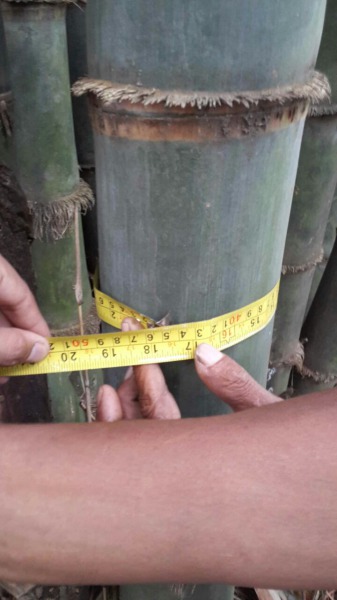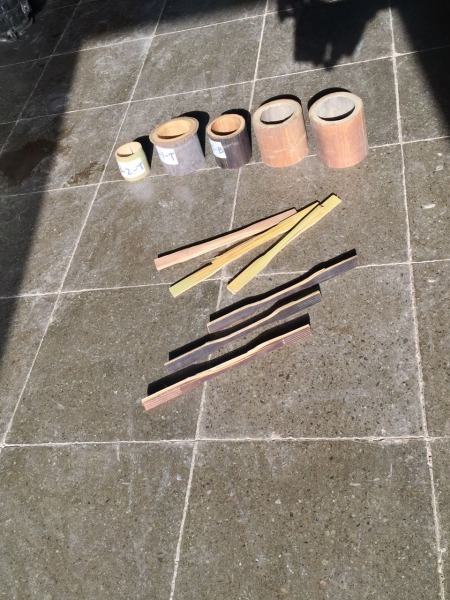image: Brahmastyo Puji | © all rights reserved
Parung, Regency of Bogor, Indonesia
meeting place
proposal (Buildify submission)
28 March 2017
#GC2022 is accepting submissions - 25d 27h 05m 44s
Parung is a location in which, like many areas in Indonesia, the issue of farm-and-village land conversion into real estate currently takes place. The land was purchased in the early 1990s and developed into farm by a grass-root organization Urban Poor Consortium (UPC) to be strategically located between a property developer’s land and villages, effectively making a “land barricade” that is intended to halt further land encroachment.
UPC looks to build a hall that will function both as a place to train future community organisers and as a community centre to coexist with the existing farm, which serves as the source of food for the land’s caretakers. The abundance of bamboo on site compels its use as the main construction material. In parallel, the existing farming would be renewed in its rotation-crops system in a small scale. Both will look at the engagement of the local community in its construction and practice.
We wish this project could help foster a continuous sense of engagement that relate to the gathering, making and producing skills in bamboo architecture and organic farming. Throughout the year, a series of farming workshops and training courses will take place. Above all, the centre will be open for community events such as wedding ceremonies, community assembly, farm harvesting time, and children play space, enhancing the surrounding environment.
Currently, most of the males in the village work in factory making jeans, while the females arrange beads. However, according to the village chief, well before the arrival of factories, residents were primarily involved in farming and weaving of pandan leaves (which became the main produce of the region).
Therefore, in addition to ecological and communal sustenance, we also wish the farm and further work on the centre could help in making an impact in economic sustenance and, in a sense, a return to self sufficiency. For example at the moment the demand for edible flowers is big in Jakarta market and we see this as one open opportunity.
Bigger than that, this activated landscape of architecture and farming project could be generated as a prototype and advocacy in “land barricading” in other places with similar cases.
The core architects team is made up of four people who have worked previously in research and mapping of informal settlements (partnering with UPC with grant from UNDP) and the construction of Co-Housing at Kampung Tongkol.
The use of bamboo is a significant driver in engaging the community. We are working with Parahyangan University and ASF-ID in experimenting with ring-lattice structural system. We would like to take this opportunity to learn this structural system (that, to our knowledge, is not common in Indonesia) together with the community and students through workshops: from preservation (with borax and boric acid) to installation. Our experience in running such workshop at Kampung Tongkol showed the possibility of knowledge transfer to other villages.
The existing farm is intended to be gradually converted into organic farm, which includes understanding plants life cycle and farming method. The community aims to work with Genus organic farming community in the training and the making of the calendar of the 10 cycles. Each cycle will require a supervisor and 2 community farmers, making a total of 20 farmers.



There are no updates yet.